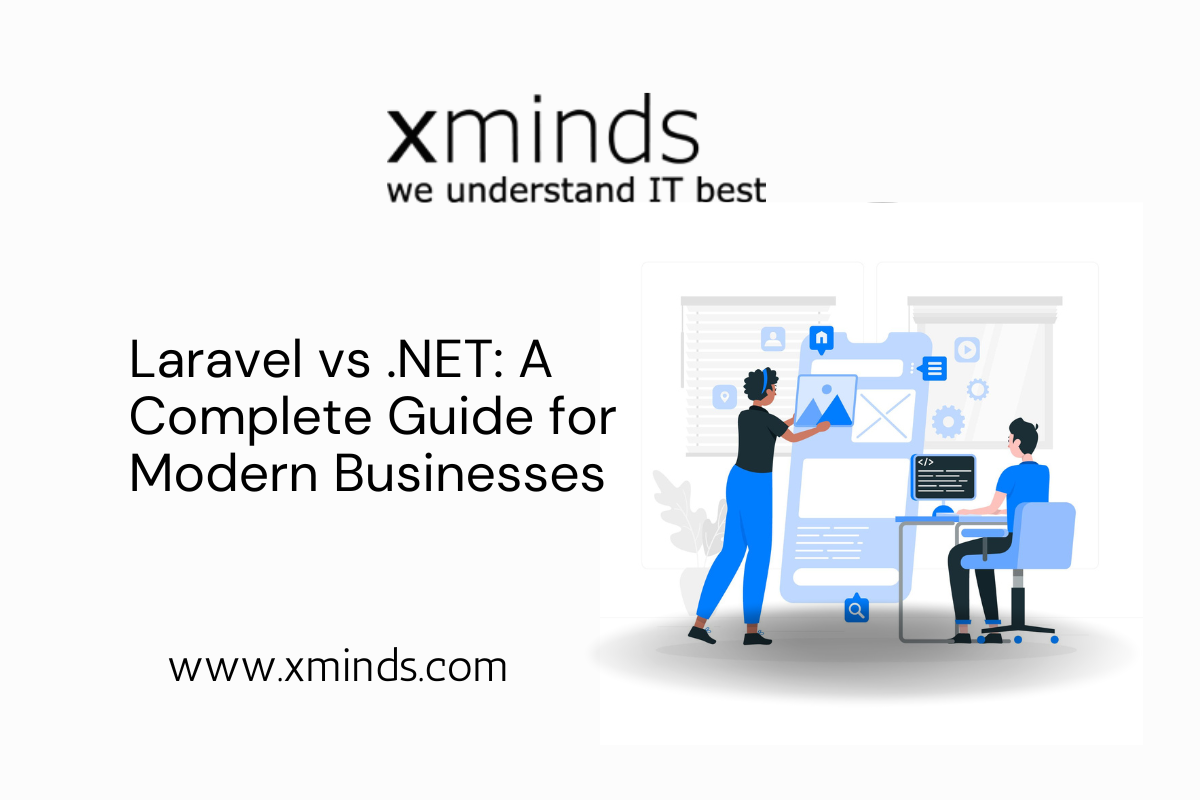Laravel vs .NET: A Complete Guide for Modern Businesses

When it comes to choosing the right technology stack for your business, the decision between Laravel and .NET is one that many modern businesses grapple with. Both of these frameworks have their strengths and weaknesses, and understanding the nuances of each can help you make an informed choice for your specific needs.
Laravel
Laravel is an open-source PHP framework that is known for its elegant syntax and developer-friendly approach. It follows the model-view-controller (MVC) architectural pattern, making it ideal for building modern web applications. Laravel also comes with a wide range of features, including a powerful ORM, a robust routing system, and a modular packaging system.
Advantages of Laravel
- Expressive Syntax: Laravel’s syntax is expressive and intuitive, making it easier for developers to write clean and maintainable code.
- MVC Architecture: The MVC pattern separates the application’s concerns, leading to better organization and maintainability.
- Blade Templating Engine: Laravel’s Blade templating engine simplifies the process of building dynamic web pages.
- Eloquent ORM: With Eloquent, developers can interact with the database using expressive, fluent syntax.
- Community Support: Laravel has a large and active community, which means that developers can easily find help and resources.
Disadvantages of Laravel
- Performance: While Laravel is known for its developer-friendly features, it may not be as performant as some other frameworks.
- Learning Curve: Developers who are new to Laravel may face a learning curve, especially if they are not familiar with PHP.
.NET
.NET is a free, cross-platform, open-source framework for building modern web applications and services. It supports multiple programming languages, including C#, F#, and Visual Basic, making it a versatile choice for businesses with diverse development teams. .NET comes with a rich set of libraries and tools, including ASP.NET for web development and Xamarin for mobile app development.
Advantages of .NET
- Versatility: .NET supports multiple programming languages, allowing developers to choose the language that best suits their needs.
- Performance: .NET is known for its high performance, making it suitable for demanding applications.
- Security: .NET provides built-in security features, such as code access security and role-based security.
- Integration with Windows: For businesses that rely on Windows infrastructure, .NET offers seamless integration with existing systems.
- Community and Support: .NET has a large and active community, as well as extensive documentation and support from Microsoft.
Disadvantages of .NET
- Learning Curve: Developers who are new to .NET may face a learning curve, especially if they are not familiar with Microsoft technologies.
- Vendor Lock-In: Some businesses may be concerned about the potential vendor lock-in when using Microsoft technologies.
Making the Right Choice
When choosing between Laravel and .NET for your business, it’s important to consider your specific requirements, such as the nature of your application, the skills of your development team, and your long-term goals. If you prioritize a developer-friendly and expressive framework with a strong community, Laravel may be the right choice for you. On the other hand, if you value performance, versatility, and seamless integration with Windows, .NET could be the better option.
In conclusion, both Laravel and .NET are powerful frameworks that can cater to the needs of modern businesses. By carefully evaluating the advantages and disadvantages of each, you can make an informed decision that aligns with your business objectives and sets you up for success in the digital landscape.
Remember, the right technology stack can be a game-changer for your business, so take the time to weigh your options and choose wisely.
I hope you find this guide helpful in making an informed decision about which framework to choose for your business. If you have any further questions, feel free to reach out to me.
